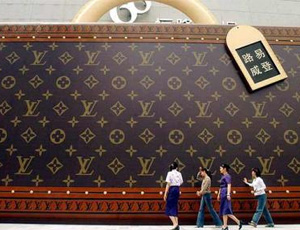Luxury Tax in China
The Chinese government makes billions on expensive imported products
Op-Ed Commentary: Chris Devonshire-Ellis
 Jun. 7 – Luxury tax in China has long been a source of significant revenues for the Chinese government, as anyone who has been able to compare the prices in China for luxury items to those in Hong Kong, for example, will be well aware.
Jun. 7 – Luxury tax in China has long been a source of significant revenues for the Chinese government, as anyone who has been able to compare the prices in China for luxury items to those in Hong Kong, for example, will be well aware.
Yet the amount of money generated by China’s taxing such items is staggering. According to HSBC’s China Luxury Tax Report, the country raised RMB1.2 trillion – US$187.9 billion – in luxury taxes in 2010, an amount so large that it constituted 78 percent of all the central government’s spending.
The term “luxury tax” is actually a composite of different taxes, being made up of import duties, VAT and consumption tax. These rates vary from product to product, but for products such as high-end cosmetics these rates equate to a respective 30 percent, 17 percent and 10 percent. This is very high when compared to other countries.
A result has been that Chinese consumers have trended towards buying such products overseas – some 80 percent of what could be termed luxury items are now purchased abroad. Or, to put it another way, Chinese consumers spend four times as much overseas in luxury items than they do at home. This has led to calls for a reduction in luxury taxes as it has the effect of pushing buyers out of China.
Doing so would provide several benefits, not least the return of Chinese consumers purchasing in China. This would provide a much needed boost to domestic consumption, prompting an increase in imports, and easing pressure on the appreciation of the RMB. This, in turn, would increase overall consumption in China and improve tax revenues across the board while increasing employment in the retail and distribution supply chains. These arguments constitute the current position of the Ministry of Commerce.
However, officials at the Ministry of Finance take the view that tax reductions would not translate to reduced prices for luxury goods, but would instead merely allow foreign manufacturers to increase profits. They also suggest that should retail prices be lowered while import duties are not, domestic retailers and distributors would be hurt as profits margins shrink, unless a rise in sales offsets the price decline. Quite why China’s Ministry of Finance is concerned about foreign manufacturers making more money is not fully understood.
The debate concerning the reduction of luxury tax is unlikely to be rectified soon, and especially as this current year sees a handover of government in China. Politically, a reduction could be seen as a move to favor the wealthy, at a time when the income disparity in China has attracted considerable attention. Whether this is sufficient to continue to buffer against the need for increased consumerism is a moot point.
In the meantime, China’s domestic consumption loss is apparent as increasing numbers of Chinese nationals have friends source and purchase luxury items from Hong Kong, Singapore, Europe and the United States – none of which is of any good to China’s exchequer whatsoever.
Chris Devonshire-Ellis is the founding partner of Dezan Shira & Associates. Dezan Shira & Associates is a specialist foreign direct investment practice, providing corporate establishment, business advisory, tax advisory and compliance, accounting, payroll, due diligence and financial review services to multinationals investing in emerging Asia. Since its establishment in 1992, the firm has grown into one of Asia’s most versatile full-service consultancies with operational offices across China, Hong Kong, India, Singapore and Vietnam as well as liaison offices in Italy and the United States.
For further details regarding tax in China, please email china@dezshira.com, visit www.dezshira.com, or download the firm’s brochure.
You can also stay up to date with the latest business and investment trends across emerging Asia by subscribing to the Asia Briefing weekly newsletter.
Related Reading
 The China Tax Guide (Fifth Edition)
The China Tax Guide (Fifth Edition)
This popular book, fully updated with all recent tax changes and amendments, details all taxes in China affecting businesses and individuals, how to calculate the amounts due, tax registration and filing procedures, tax minimization techniques, and claiming VAT rebates. It also details good financial management techniques, handling negotiations with the tax bureau and annual audit and compliance procedures.
China’s Provincial Retail Statistics for 2011
Consumption Trends and Targeting China’s Female Consumers
China’s Exploding Wine Consumption
China May Reduce Import Duties on Luxury Goods
Demand for Luxury Goods Spilling Over Into China’s 2nd and 3rd Tier Cities
Int’l Luxury Brands Enthusiastic about Hong Kong Listing
- Previous Article China’s State Council Issues Opinion on International Cooperation and Competition
- Next Article China Releases 12th Five-Year Plan for Trade in Electromechanical and High-Tech Products









